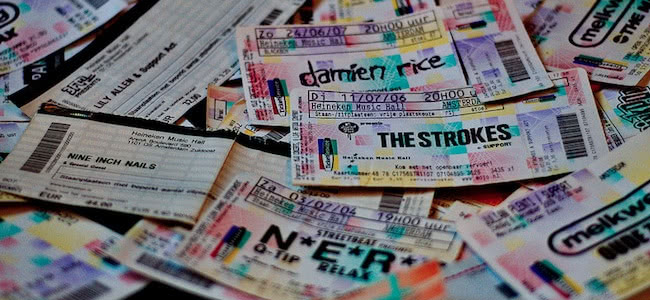In 2007, Radiohead’s In Rainbows changed the way music was sold, offering their fans the chance to pay what they thought the record was worth. The digital version of the album was able to be downloaded with fans able to pledge money anywhere from zero dollars to £99.99. Within two days, the success was obvious, with over 1.2 million digital copies of the record being downloaded. The rest, as they say, is history.
Now, an Adelaide concert series is set to model the same idea on tickets to live concerts, with Recitals Australia launching the new “Pay What You Think It’s Worth” initiative, as Adelaide Now reports.
The new concert series which will showcase modern piano performances, and asks audience members to pay what they believe the performances are worth, setting their own entry fee, with a minimum of $10 for tickets bought at the door.
Recitals Australia President Anthony Steel says the initiative is aiming to address the unresponsiveness to contemporary classical music performances, attempting to draw audiences back after ailing sales in recent times. “If people pay the $10 minimum that’s fine by me but a whole lot more would be better,” he notes.
Mr Steel added he has been “keen to try something like this for a few years,” saying the Pay What You Think… initiative was important to small organisation with “tiny” marketing budgets.
Opening the three-part piano concert series is Australian-born, New York-based pianist Lisa Moore, performing at ABC’s Studio 520 at Collinswood, South Australia at this evening’s opening night. “It’s a creative invitation to up the ante from a free concert… to thinking ‘hey, I’m at a live concert and the artist is playing… I would like to acknowledge their efforts and talent.'” – Lisa Moore, Pianist
Moore spoke in support of the Pay What You Think It’s Worth scheme, commenting “It’s a creative invitation to up the ante from a free concert… to thinking ‘hey, I’m at a live concert and the artist is playing, putting out energy and working, and I would like to acknowledge their efforts and talent.'”
While Radiohead’s In Rainbows method was subject to some criticism, most notably from The Guardian’s scathing piece, there’s no arguing that the ‘pay what you want’ pricing model significantly changed the way in which we consume music.
Though it’s a small start, the Adelaide initiative that applies the same idea to live music suggests that music at a one price fits all is a thing of the past, and there’s potential the idea could be modelled on a larger scale.
It’ll no doubt be welcomed among today’s industry where artists and promoters are putting the high costs of concert touring and production onto ticket prices, and therefore directly onto the consumer.
Some international artists already taking a stance against the soaring prices of live gigs by selling cheaper tickets to their shows, including Bon Jovi, who yesterday announced a selection of flat-rate $35 tickets will be available for their forthcoming Australian Tour. The What About Now Tour hits Australia in December, and Paul Dainty of promoters Dainty Group has said “thousands” of these tickets, allowing for music fans to enjoy the show without the hefty price tag.
“Everyone is suffering a bit from the economic doom and gloom perceptions and the band want to help out, give people a great start to their Christmas celebrations,” said Dainty of the new budget pricing, which the band tested for the opening European and American legs of their 2013 World Tour.
It’s an issue that was close to Kid Rock’s heart too. The American rap rocker is currently offering flat $20 tickets to his summer Best Night Ever tour, lamenting in a recent interview how the price of concert tickets had “gotten out of hand.” When asked about non-VIP tickets going for up to US$200 to concerts for Jay-Z and Justin Timberlake, Rock spat: “It’s garbage. It’s highway robbery – I don’t care who you are.”
Though it’s an idea still in its very early conception, Recitals Australia’s ‘Pay What You Think It’s Worth’ initiative could be the first steps to a new ticket pricing revolution, after all, once upon a time it seemed equally batty you could get a new Radiohead album from the band themselves without paying a cent…

































